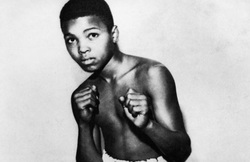It discusses the importance of putting your wants, needs, and desires first (as opposed to pleasing others) in order to live a happy and fulfilling life.
Sort of like the emergency procedure on airplanes "in the event of a loss of cabin pressure... please secure your own mask before attempting to help others." This is basically saying to get your affairs in order before you begin to get involved with others. If one is a constant "people pleaser" and putting others needs before their own, the individual is liable to find themselves depressed and exhausted. People have an uncanny ability to drain energy from others without feeling remorse or appreciation. Humans are conditioned to please others from an early age until they are mature enough to stand their ground and establish boundaries. Sometimes this maturity is under developed and can leave an individual feeling victimized and taken advantage of. This learned helplessness can be seen with those begging for spare change on the street. It seems that there will never be enough "change" in the world to satisfy their need. I'm not suggesting one adopt a callous attitude towards the less fortunate, I'm simply stating that if one is rewarded for simply needing help, then what is their incentive to emancipate themselves from their situation? In most cases poor mental health, substance addiction, and depression are to blame for such circumstances.
The Aristotelian argument that there is no such thing as altruism also comes to mind. The ancient philosopher claimed altruistic behavior was motivated from self concern. Begging serves the donor as well as the supplicant. The donor is able to positively contribute against their balance of 'karmic' debt; whereas, the supplicant is rewarded for their humility in begging.
Philosophical arguments aside, when people are constantly giving away their time, wealth, power, or energy... they are liable to find themselves bankrupt in each of those categories.
Learning to say "No" when one has been conditioned to please others is easier said than done. The simple notion of asking oneself if they truly wish to give of themselves is somehow labeled as "selfish" with negative connotations. Ironically people are also master manipulators, a trait we've been cultivating since birth. Crying for attention is a form of manipulation especially when the tears are insincere. A parent who rushes to attend the needs of a crying child teaches that the child simply has to whine/cry in order to receive attention. When parents eventually learn to "let the child cry" and distinguish between genuine and insincere tears, then the child learns that their cries may not always be sufficient to garner the expected response and a new coping strategy is developed (usually one that allows the parents to rest).
When one finally learns to establish boundaries and stick to them, they have effectively earned their freedom. It is a statement of what is or isn't acceptable in dealing with one another. Those repeat offenders who don't seem to understand these boundaries are free to move on to another source of energy to feed off. Suddenly, the empowered individual has held their ground and isn't a slave to catering to the bully. This provides a positive feedback loop of confidence and guiltless conscience to the 'giver' who has preserved their integrity by not committing to cheapening their energy with undesirable tasks.
If one does not learn to master their ability to set meaningful boundaries, then they are vulnerable to being enslaved by their own weakness to deal with "energy vampires".









 RSS Feed
RSS Feed
